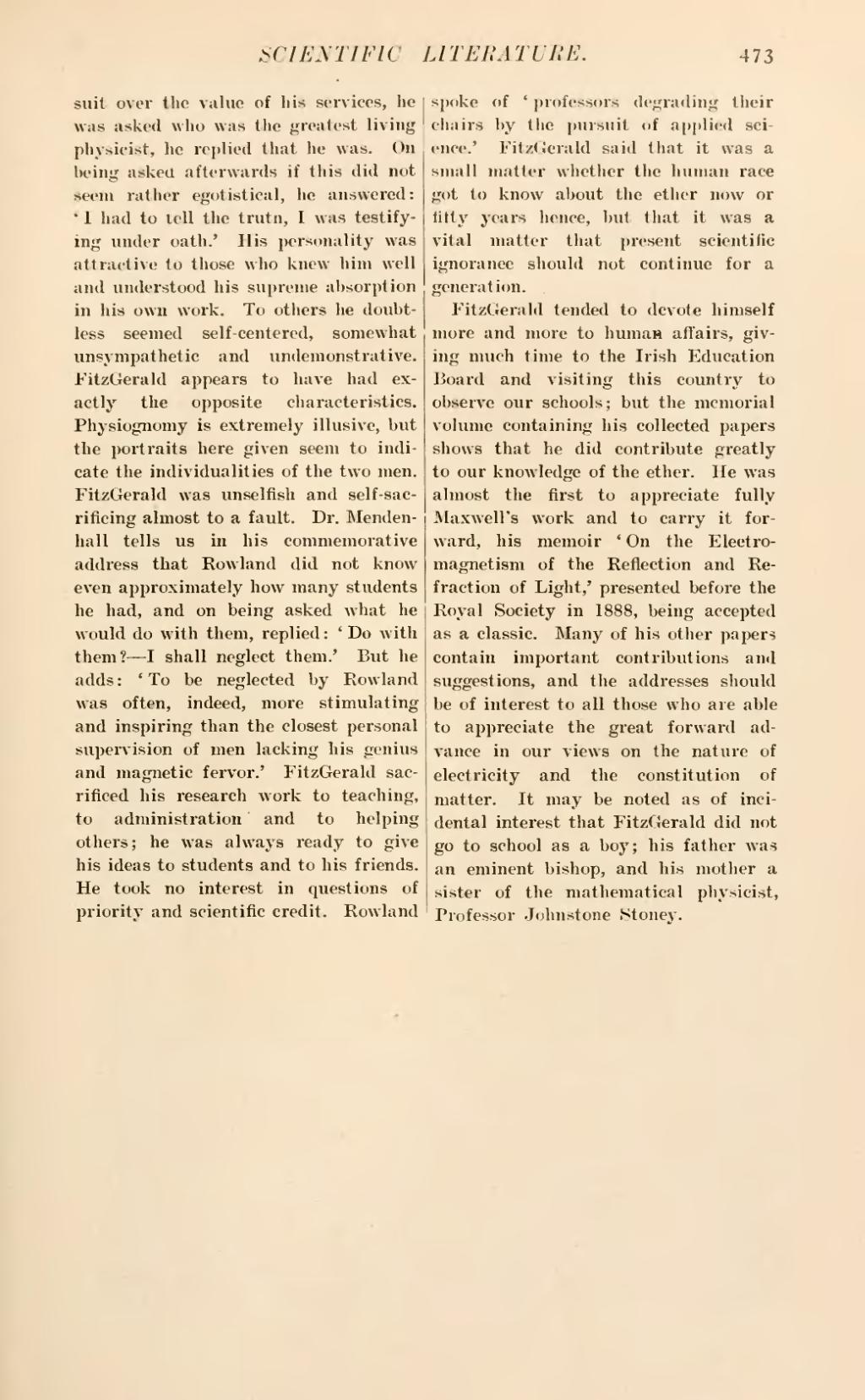suit over the value of his services, he was asked who was the greatest living physicist, ho replied that he was. On being asked afterwards if this did not seem rather egotistical, he answered: 'I had to tell the truth, I was testifying under oath.' His personality was attractive to those who knew him well and understood his supreme absorption in his own work. To others he doubtless seemed self-centered, somewhat unsympathetic and undemonstrative. FitzGerald appears to have had exactly the opposite characteristics. Physiognomy is extremely illusive, but the portraits here given seem to indicate the individualities of the two men. FitzGerald was unselfish and self-sacrificing almost to a fault. Dr. Mendenhall tells us in his commemorative address that Rowland did not know even approximately how many students he had, and on being asked what he would do with them, replied: 'Do with them?—I shall neglect them.' But he adds: 'To be neglected by Rowland was often, indeed, more stimulating and inspiring than the closest personal supervision of men lacking his genius and magnetic fervor.' FitzGerald sacrificed his research work to teaching, to administration and to helping others; he was always ready to give his ideas to students and to his friends. He took no interest in questions of priority and scientific credit. Rowland spoke of 'professors degrading their chairs by the pursuit of applied science.' FitzGerald said that it was a small matter whether the human race got to know about the ether now or fifty years hence, but that it was a vital matter that present scientific ignorance should not continue for a generation.
FitzGerald tended to devote himself more and more to human affairs, giving much time to the Irish Education Board and visiting this country to observe our schools; but the memorial volume containing his collected papers shows that he did contribute greatly to our knowledge of the ether. He was almost the first to appreciate fully Maxwell's work and to carry it forward, his memoir 'On the Electromagnetism of the Reflection and Refraction of Light,' presented before the Royal Society in 1888, being accepted as a classic. Many of his other papers contain important contributions and suggestions, and the addresses should be of interest to all those who are able to appreciate the great forward advance in our views on the nature of electricity and the constitution of matter. It may be noted as of incidental interest that FitzGerald did not go to school as a boy; his father was an eminent bishop, and his mother a sister of the mathematical physicist. Professor Johnstone Stoney.

